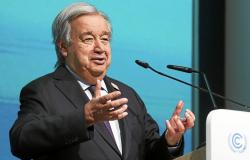At COP29 in Baku, the G20 final declaration, drafted in Rio, sparked contrasting reactions among delegates and non-governmental organizations (NGOs). While notable progress has been welcomed in terms of climate finance, particularly in favor of developing countries, the absence of an explicit commitment to abandoning fossil fuels has been strongly criticized.
In their press release, the G20 leaders insisted on the importance of increasing climate financing. They called for mobilizing public and private investment, particularly to support developing countries. Adonia Ayebare, president of the G77+China, acknowledged that this communiqué represented a solid basis for negotiations in Baku, but he highlighted the lack of clarity on where this funding would come from. “We requested that these funds come from public sources, in the form of preferential loans or grants, which was not clearly specified,” he said.
Mohamed Adow, from the Powershift Africa think tank, welcomed the fact that the G20 recognizes the need to strengthen public financing. However, without a clear timetable or enforcement mechanisms, these declarations risk remaining aspirational, according to Oscar Soria, an experienced campaigner in climate negotiations.
Unmet expectations on fossil fuels
The lack of commitment to the gradual exit from fossil fuels, an element considered central by NGOs, has crystallized criticism. During COP28 in Dubai, this theme was among the priorities. In Rio, however, the final G20 communiqué did not reiterate this objective, sparking unanimous frustration.
“Silence on phasing out fossil fuels is an unacceptable setback for major economies and major emitters,” said Rebecca Thissen of Climate Action Network. NGOs believe that this lack of leadership from major powers is hampering global efforts to limit global warming.
High expectations for the continuation of the negotiations
As the COP29 negotiations continue in Baku, the international community expects concrete actions to compensate for this lack of ambition. The G20 press release mentions a potential “success” for the new collective quantified objective, but remains vague on the figures and concrete measures.
For Harjeet Singh, a member of the Fossil Fuel Non-Proliferation Treaty Initiative, this lack of reaffirmation of goals is a missed opportunity. “Abandoning fossil fuels is essential to achieving climate goals, and G20 leaders have failed in their collective responsibility,” he said.
The outcome of the discussions in Baku will be crucial to assess whether these financial commitments can be translated into concrete actions and whether the necessary political signals will be sent to accelerate the global energy transition.





